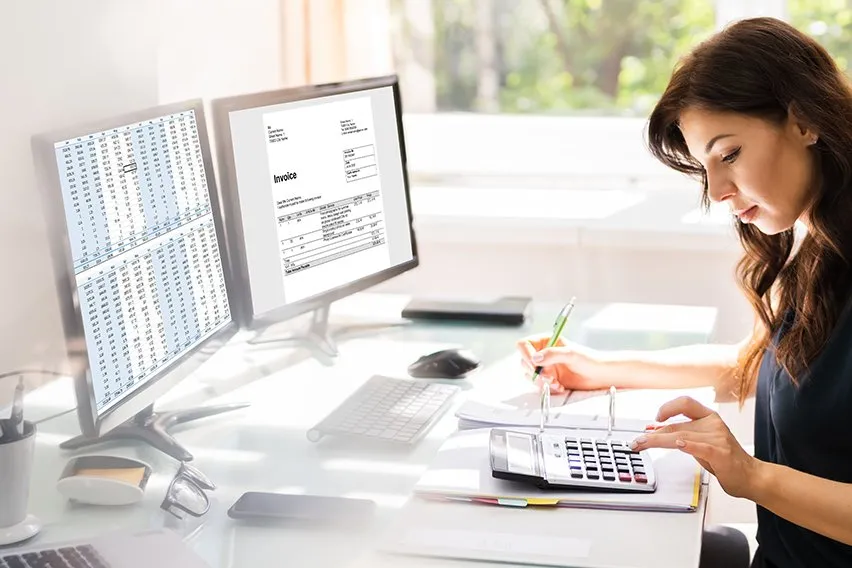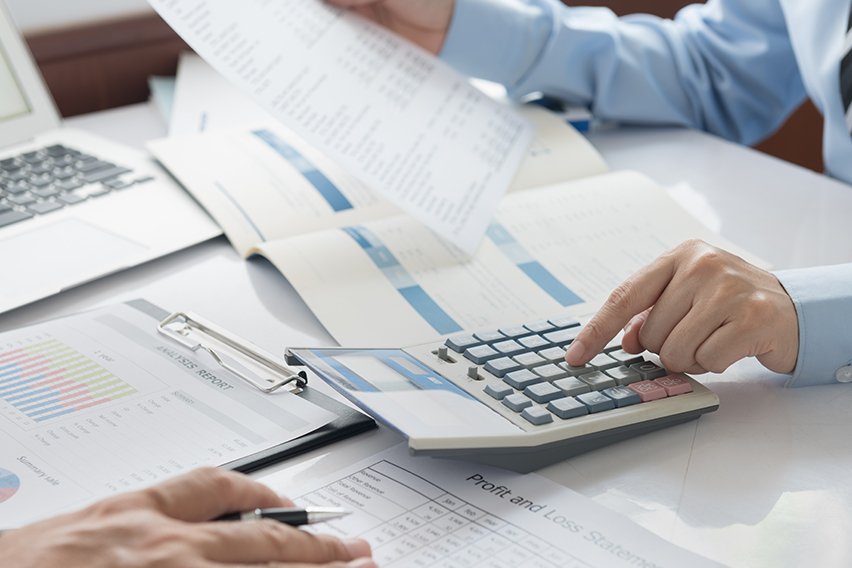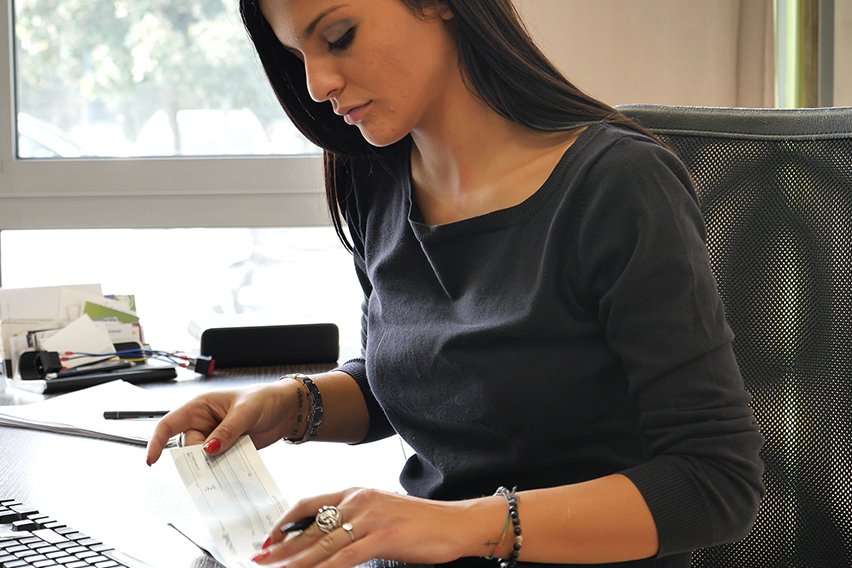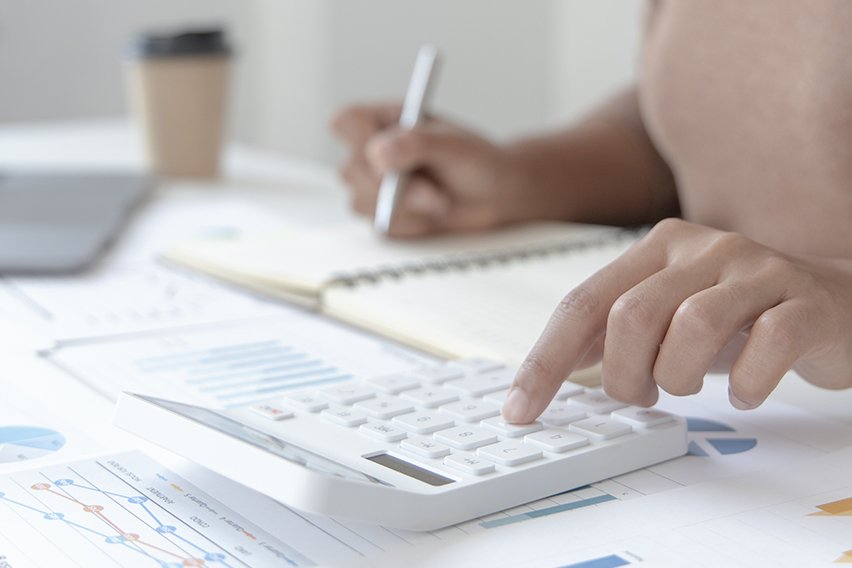What is Blockchain Accounting? A Primer for Small Businesses

Blockchain has gained a lot of traction despite being a polarizing technology and an elusive concept for many. Most people love it, hate it, or don’t understand it at all.
Whatever your stance, it’s hard to ignore the growing number of organizations accepting cryptocurrency. This has made blockchain accounting a hot topic, especially for those in the accounting profession. Schools and big accounting firms like Deloitte are already educating on blockchain accounting.
Though mainstream adoption isn’t happening any time soon, it’s becoming increasingly important to understand how blockchain technology can change many aspects of tax season preparation as you know it.
In this post, we’ll focus our attention on how blockchain affects the accounting industry and what impacts this technology can have on your small business finances.
Here’s What We’ll Cover:
What is Blockchain Technology?
How Does Blockchain in Accounting Work?
A Primer on General Ledgers and Double-Entry Accounting
How Will Blockchain Technology Affect the Accounting Industry?
How Blockchain Will Support Accountants
How Blockchain in Accounting Can Help Business Owners
Blockchain Accounting Takeaways
More Resources on Small Business Accounting
What is Blockchain Technology?
Blockchain is a decentralized, distributed ledger that focuses on the ownership and transfer of assets. It records transactional data in a way that’s almost impossible to manipulate.
Blocks of transactional data connect in chronological order. The chain of blocks gives the technology its name.
The blockchain database records the data of organizations and individuals across the world.

How Does Blockchain in Accounting Work?
Blockchain technology has the potential to replace the 500-year-old double-entry accounting system. Blockchain distributed ledger technology would popularize the triple-entry accounting system.
A Primer on General Ledgers and Double-Entry Accounting
Let’s revisit the basics of a general ledger (GL) as we know it today. A GL includes all the assets, liabilities, equity, expense, and income ledgers, which make up a complete set of the financial transactions records. To make sure a GL is accurate, you’d use a double-entry accounting system.
In a double-entry accounting system, you record a debit and a credit of the same amount at the same time. In a triple-entry accounting system, a debit, credit, and a third entry is recorded. The third entry would be on the blockchain.
Standard accountancy requires a significant time investment from all organizations in the supply chain. Businesses keep their own ledger to ensure business’ financial records are accurate and compliant. This process is also susceptible to human error.
Here’s where blockchain’s solution can make an impact.
How Will Blockchain Technology Affect the Accounting Industry?
There are three key aspects of blockchain that can affect the accounting industry.
- Smart contracts
- Decentralized, distributed ledger technology
- Easily verifiable financial records
Smart Contracts
A smart contract is one of many blockchain applications that can streamline tedious tasks in today’s accounting.
With smart contracts, transactions automatically go through when certain conditions are met. This helps accounting professionals and organizations automate jobs like payroll and reconciliations.This would save organizations on costs linked to manual entry errors such as administrative expenses.
This application also helps clients and organizations against scams and fraud.
Decentralized, Distributed Ledger Technology
One of the first popular blockchain applications was that it cut out the middle man when transferring money. For example, you can send money peer-to-peer (P2P) without having to go through a credit card processor or bank.
Although the middle man slows down transactions and adds fees for their services, they’re not all bad. The middle man plays a large role in protecting both parties in the exchange of assets from fraud. Blockchains maintain this security with public witnesses called miners. Miners replace a central authority’s role in verifying transactions. This is done securely using a consensus protocol, or a set of rules based on mutual agreement.
Altering Transactions on the Blockchain
Blockchain’s decentralized nature also helps act as proof that a transaction happened.
In the past, we’d use paper receipts for proof that a transaction occurred. Paper receipts were relatively hard to tamper with. With the introduction of digital payments came digital receipts, which are easier to tamper.
Blockchain tech is again a promising solution to this problem.
Blockchain’s immutable nature comes from the fact that once a public consensus validates a transaction into the blockchain, it’s virtually impossible to alter or delete the transaction.
If an organization modifies a transaction’s data in the blockchain, it’ll affect the hash value. This will be an immediate red flag that someone tampered with the data. Passwords commonly use hashes too.
A hash value is basically a generated string of characters. It protects the sensitive data of the transaction and acts as a receipt that verifies the transaction occurred at a certain time.
Step-by-Step: How It Works (Example)
Here’s an example of how it works:
- You buy a car with bitcoin.
- The public consensus protocol verifies the transaction as legitimate.
- The transaction enters the blockchain with a digital signature and is time-stamped.
- The blockchain network generates an identical hash on both your end and the car dealer’s end of the shared public ledger.
- An auditor performs a search in the blockchain to find an identical hash string.
- If the auditor finds no matching hash, this is a red flag for the auditor that someone has altered the data.
How Blockchain Will Support Accountants
Blockchain accounting doesn’t seek to replace traditional accounting nor accountants. Instead, it aims to impact accounting workflows associated with the traditional accounting profession and record keeping. There’ll still be gaps where traditional accounting will be important.
Blockchain in accounting will help accountancy firms and accounting professionals, particularly auditors, with business audits. Since a large part of audits is verifying the occurrence and accuracy of financial records, this would free up a lot of time for the accounting professional to focus on other things.
Blockchain technology will reduce the need to follow paper trails as the blockchain would be enough to prove many parts of a traditional audit.
The Limits of Blockchain on Audits
During an audit, an accounting professional can easily confirm that a transaction happened, but the transaction details aren’t recorded.
For example, blockchain technology will record that you bought something with 1 bitcoin. However, accountants can’t see whether it’s a car or even that you categorized your assets correctly. Paying 1 bitcoin for a business car has different tax implications than sending a friend 1 bitcoin for their birthday.

How Blockchain in Accounting Can Help Business Owners
Blockchain technology reduces the possibility of disputes by fraudsters and scams. This reduces risks for all parties who use blockchain technology for accounting purposes. It also saves businesses a lot of time from having to deal with fraud or trying to collect money from dishonest organizations.
The immutability of blockchain technology leads to lowered cost of regulatory compliance and more efficient audits for accounting firms or auditors.
This means that it’ll also save you and your bookkeeper tons of time while also making it easier to audit your own financial records.
It’ll eliminate mundane jobs like reconciliation transaction data and having to put manual entries into your ledger.
Blockchain Accounting Takeaways
The adoption of blockchain technology along with artificial intelligence technologies and, more specifically, machine learning is happening at a fast rate. These technologies can revolutionize the accounting industry.
Governments are now introducing tax laws that address blockchain. This means they are taking blockchain more seriously and that it might be a good idea for you to as well.
Even if you’re not using cryptocurrency, blockchain accounting can involve US dollars and other assets. Plus, understanding the basics of blockchain will help you follow future updates and be more prepared. Then when the time comes that blockchain technology directly impacts your business, you’ll be ready.
If this subject interests you, understanding closing your books will help you more easily see the promising value of blockchain.
More Resources on Small Business Accounting
RELATED ARTICLES

 Levered Free Cash Flow Formula (FCF Formula Guide)
Levered Free Cash Flow Formula (FCF Formula Guide) What is Certified Payroll?
What is Certified Payroll? What is Overtime? Guide for Businesses
What is Overtime? Guide for Businesses What is Opening Balance Equity and How to Fix It?
What is Opening Balance Equity and How to Fix It? Unlevered Free Cash Flow (UFCF): Guide, Formula & Examples
Unlevered Free Cash Flow (UFCF): Guide, Formula & Examples How to Become a Bookkeeper: A Step By Step Guide
How to Become a Bookkeeper: A Step By Step Guide